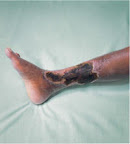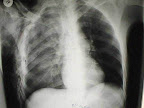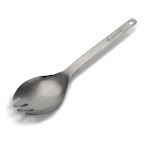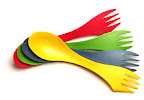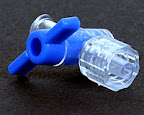 Unfortunately, like most other doctors, I have retrieved my share of foreign bodies. I obviously appreciate that there are some people who get a thrill out of putting objects inside themselves (and for some others, that thrill extends to having it removed). But as a person who abstains from wearing a watch, ring, necklace, bracelet, getting pierced, tattooed or otherwise mutilated in any way, I just cannot understand or empathise.
Unfortunately, like most other doctors, I have retrieved my share of foreign bodies. I obviously appreciate that there are some people who get a thrill out of putting objects inside themselves (and for some others, that thrill extends to having it removed). But as a person who abstains from wearing a watch, ring, necklace, bracelet, getting pierced, tattooed or otherwise mutilated in any way, I just cannot understand or empathise.The very first foreign body I unfortunately had to remove was as an intern - a deodorant roll-on (cap still intact). Unfortunately the soft plastic and the smooth contours of these objects make them nigh on impossible to grab with a sigmoidoscope and forceps. Thankfully, just as the surgical registrar was about to book theatre for the laparotomy, I managed to grab it with my fingers (under a fair amount of midazolam sedation) and extract the nasty object. My lessons from that incident?
- It is amazing how far up a gloved hand can go.
- It is possible to endure a plane flight and two taxi rides with a very full rectum.
- You don't want to know how it got there.
Since then there have been numerous other rectal foreign bodies of various shop-bought, home-made, and (in one case) almost-flat-battery types. There have been the cotton-bud tips in the ear, the fish hooks in the bladder, and the spoon found after 3 months in a skin fold, bits of unchewed steak in the oesophagus (aren't I glad I learnt to do a rigid scope) , and various foreign bodies in diabetic feet. My favourites have been the apple-stem lodged sideways which removed easily after a flash of inspiration (cut it in half!) and, as an iatrogenic complication, the coronary guidewire tied in a knot inside the aorta. Basically you name an orifice (including those created by doctors) and something bad can get up there.
So here are my top ten tips for dealing with foreign bodies:
- Glass is visible on x-ray. It is amazing how revealing a plain x-ray is. Now we have the luxury of CT scans, but if you are ever unsure - just get an x-ray. And failing that an ultrasound.
- Unless a rectal foreign body presents as an assault, it is never the first time.
- You don't really want to know how or why. Just how to get it out.
- The patient never wants it back.
- Never poke a sharp object up to retrieve a blunt one, unless you can see exactly what you are doing and are prepared to deal with the consequences. Plaster of Paris can come in handy.
- For rectal foreign bodies, before you do the laparotomy (or colotomy), try some bimanual palpation under GA. Often a gentle suprapubic push and two intrarectal fingers will guide it around the sacral prominence.
- Just because it came out, don't assume it (or you) did no damage. Keep the patient for observation and/or do a scope.
- Prison inmates like to swallow things, usually to get out of the boredom of prison for a few hours. Usually they look impressive on X-ray (e.g. razor blades, screws) but are often harmlessly wrapped in sticky-tape.
- If swallowed, occasionally it is easier to let it work its way out on its own.
- Sometimes there is nothing there (e.g. fish bones). If you can't find or prove it, it probably won't do any harm anyway.
